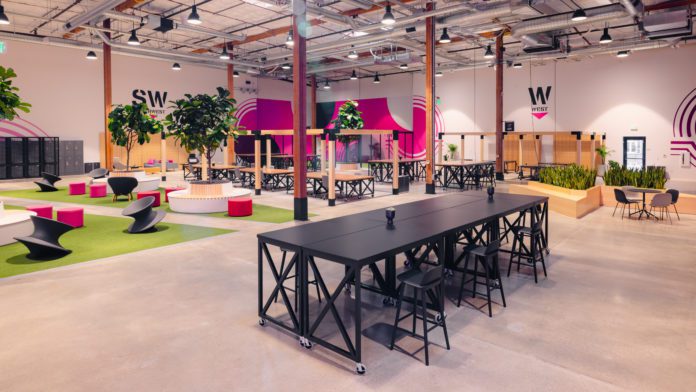T-Mobile US has set its sights on expanding its support for 5G ecosystem development, with a new developer platform, a new collaboration and testing facility and new partnerships with Disney StudioLab and Red Bull focused on 5G-driven entertainment and sports content creation.
T-Mobile US President of Technology Neville Ray said during a company presentation yesterday that more than 40% of the carrier’s customers have a 5G devices. “That’s an incredible rate of adoption,” he added. “In just the last 12 months, our 5G traffic has increased sixfold and today, nearly half of the traffic on our network is 5G.
“We’ve seen that 5G has fundamentally changed the way people use their smartphones, and they’re just beginning to experience what 5G is truly capable of,” he continued. Ray said that customers who use 5G spend twice as much time streaming video, game five-time more than use three times as much hot spot data. Still, those aren’t exactly killer new apps — and Ray put the blame on how telecom carriers interact with developers and innovators.
“The truth is, 5G developer innovation has been underwhelming so far,” Ray said. “It will never take off, and 5G will never live up to its full potential if the carriers don’t get out of the way. Building on 5G should be easy. It should be accessible to all developers, but it’s not. The carriers’ developer programs were created for companies just like them. Massive enterprises with the resources and time to navigate a complicated maze of carrier processes and BS.” The company then played a video interviewing a series of entrepreneurs and developers who listed issues such as developers not knowing what was available to them, or not being able to clearly understand who to talk to in order to get involved in 5G development with a carrier partner.
T-Mobile US aims to reduce those barriers through a multi-pronged “5G Forward” approach with a new “Dev Edge” program for “fast, easy and simple” access to its network, including giving away 1,000 developer kits for free this summer; an expanded facility, its Tech Experience 5G Hub, next to its network and device labs for 5G experimentation and development for collaboration between T-Mo engineers and would-be 5G app and device creators; a venture fund to put money into companies working on innovations that relate to or use 5G; and 5G-focused partnerships with the likes of Disney Studio Lab and Red Bull, as well as developing on Qualcomm’s XR developer platform.
The facility is a 24,000 square foot expansion near the carrier’s existing lab facilities, and T-mo said that collaborators will have access to high, mid- and low-band spectrum, edge compute, network slicing and private network installations, as well as an indoor drone test flight area and 3D printers and laser cutters to run prototypes.
Rob Roy, T-Mo’s SVP of emerging business innovation, said that its Dev Edge program will help reduce time to market by providing information on pre-certified modules, chipsets and devices, as well as access to APIs — and that the carrier wants to streamline approval processes, which he said can mean a year of waiting in order to get a simple IoT solution up and running.
John Saw, EVP of advanced and emerging technologies, said that T-Mobile US will also be investing in 5G ecosystem development through its existing Open Innovation Lab, its T-Mobile Accelerator and T-Mobile Ventures. He pointed to two specific new investments: In Signalwire, which focuses on software-defined telecom including voice, video and messaging APIs; and SpectroCloud, which he describes as a Kubernetes management platform for enterprise that removes barriers to leveraging cloud infrastructure. He also pointed to existing work with companies like driverless electric car service Halo as the type of collaboration that T-Mobile US wants to facilitate.

